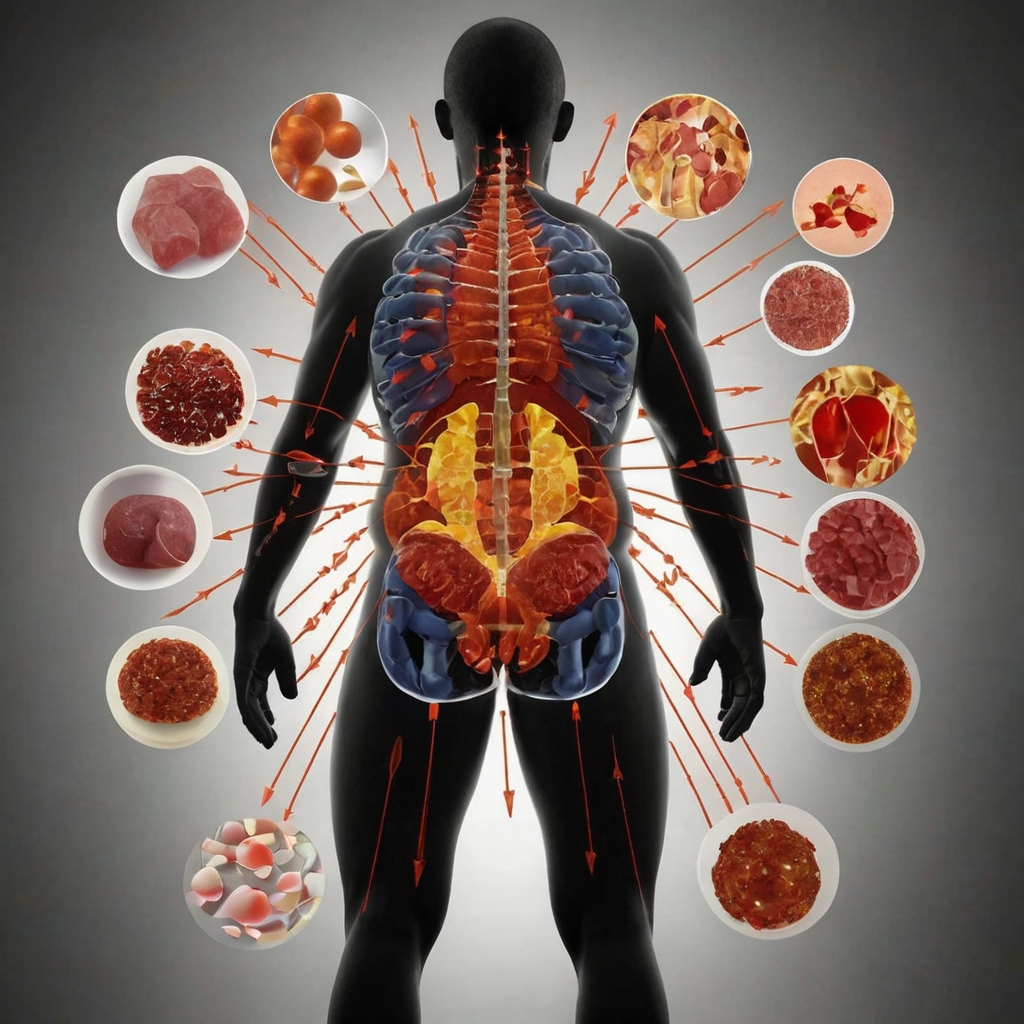Disclosure:
Thank you for reading this post, don't forget to subscribe!
Some of the links on this website are affiliate links. This means that if you click on the link and make a purchase, we may receive a small commission at no extra cost to you. Your support helps us keep the site running.Learn more on my Privacy Policy and Affiliate Disclosure page. Thank you for your support!

Intermittent fasting (IF) has emerged as one of the most popular health and fitness trends in recent years. But what is intermittent fasting, and how does it work? Simply put, intermittent fasting is an eating pattern that alternates between periods of fasting and eating. Unlike traditional diets, which focus on what you eat, intermittent fasting emphasizes when you eat, giving your body specific windows of time to rest, repair, and rejuvenate.
The rise in popularity of intermittent fasting can largely be attributed to its simplicity and its reported effectiveness in promoting weight loss. Not only does it help reduce calorie intake, but it also triggers metabolic changes that make it easier for the body to burn fat. For those struggling with traditional calorie-counting methods, intermittent fasting offers a new approach that aligns with natural body rhythms.
However, while intermittent fasting has proven benefits, it’s essential to consult with a medical professional before making significant dietary changes. Fasting may not be suitable for everyone, particularly those with pre-existing health conditions. The Ultimate Guide to Building Muscle and Losing Fat While Dieting
Stay Ahead with Morningscape Mindset Media!
Sign up now to receive exclusive updates on our latest posts — delivered directly to your inbox!
What is Intermittent Fasting?

Intermittent fasting is not about starvation but rather about cycling between eating and fasting periods. This approach allows the body to enter a fasted state, during which it burns stored fat more efficiently. Several methods of intermittent fasting can be tailored to individual needs:
- 16/8 Method: You fast for 16 hours and eat all your meals within an 8-hour window. For example, eating only between 12 p.m. and 8 p.m.
- 5:2 Diet: This method involves eating normally for five days a week and restricting calorie intake to about 500-600 calories for two non-consecutive days.
- Eat-Stop-Eat: You fast for 24 hours once or twice a week, eating nothing from dinner one day until dinner the next day.
When you fast, your body goes through several changes at the cellular and molecular levels. One key change is the decrease in insulin levels, which facilitates fat burning. Lower insulin levels signal the body to use stored fat for energy, enhancing weight loss. Additionally, the body’s cellular repair processes improve, supporting overall health and well-being.
read next:
related article: the science behind fasting: What is intermittent fasting? Does it have health benefits?
How Intermittent Fasting Supports Weight Loss

Intermittent fasting is effective for weight loss because it shifts your body’s metabolic state. Here’s how it works:
- Boosting metabolism: When you fast, your body starts burning stored fat for energy. This process is called lipolysis, where fat is broken down into fatty acids and used for fuel.
- Regulating insulin: By reducing insulin levels, intermittent fasting limits fat storage. When insulin is low, the body can access stored fat more easily.
- Reduced calorie intake: By limiting your eating window, intermittent fasting naturally reduces the amount of food you consume, often without even realizing it. Fewer eating opportunities generally lead to fewer calories consumed.
- Appetite regulation: Intermittent fasting affects hormones such as ghrelin (the hunger hormone), reducing your overall appetite. This makes it easier to maintain a calorie deficit, which is essential for weight loss.
check out: Full-Body Strength Training: A Beginner’s Guide to Building a Stronger, Healthier You-This article will guide you through the top 12 workouts that are perfect for achieving full-body toning, ensuring that you get the most out of every sweat session.
The Health Benefits Beyond Weight Loss

While weight loss is a primary reason many people try intermittent fasting, the health benefits go far beyond the number on the scale. Research has shown that intermittent fasting can improve various markers of health:
- Heart health: Intermittent fasting can improve heart health by reducing levels of LDL cholesterol, blood sugar, and inflammation—factors that contribute to heart disease.
- Brain function: Fasting boosts brain health by promoting the production of brain-derived neurotrophic factor (BDNF), a protein that supports cognitive function, learning, and memory.
- Anti-aging effects: Through a process called autophagy, intermittent fasting triggers cellular repair and the removal of damaged cells. This process has been linked to anti-aging benefits and reduced risk of chronic diseases.
find out more about: Healthy Aging: Tips For A Long And Active Life-Keeping active and eating right are the cornerstones of healthy aging.
Common Mistakes to Avoid with Intermittent Fasting
Despite its simplicity, intermittent fasting can be tricky if not approached correctly. Here are some common pitfalls to avoid:
Who Should Avoid Intermittent Fasting?
- Overeating during eating windows: Many people mistakenly believe that they can eat as much as they want during their eating periods. This can negate the calorie deficit created by fasting and hinder weight loss.
- Ignoring nutritional quality: Fasting doesn’t give you a free pass to eat junk food. Nutrient-dense foods are essential to provide the body with the vitamins and minerals it needs to function optimally.
- Inconsistent fasting patterns: Skipping fasting days or frequently changing your schedule can disrupt your body’s adaptation to fasting, reducing its effectiveness.
- Ignoring body signals: Fasting is not for everyone. If you experience dizziness, fatigue, or weakness, it’s essential to listen to your body and adjust your fasting routine.
learn more about: Beneficial effects of intermittent fasting-a narrative review.
While intermittent fasting has many benefits, it’s not suitable for everyone. Certain groups of people should avoid or approach fasting with caution:
- Pregnant or breastfeeding women should avoid fasting as they need a consistent intake of nutrients for their health and their baby’s development.
- Individuals with a history of eating disorders should be wary of fasting, as it may trigger unhealthy behaviors.
- People with medical conditions, such as diabetes or heart disease, should consult their healthcare provider before starting intermittent fasting to ensure it’s safe for them.
EXPLORE MORE:
How to Start Intermittent Fasting Safely
If you’re ready to try intermittent fasting, here’s a step-by-step guide to help you get started safely:
- Choose a method: Start with a method that fits your lifestyle. The 16/8 method is a good option for beginners.
- Gradually increase fasting periods: Begin with shorter fasting windows and gradually increase them as your body adjusts.
- Stay hydrated: Drink plenty of water during fasting periods to prevent dehydration.
- Plan balanced meals: During eating windows, focus on whole, nutrient-dense foods like fruits, vegetables, lean proteins, and healthy fats.
- Exercise smartly: Incorporate light exercise such as walking or yoga, especially when you’re fasting.
down load: Complete Guide to Intermittent Fasting-for beginners
Conclusion
Intermittent fasting offers a sustainable and straightforward approach to weight loss by harnessing the body’s natural metabolic processes. Beyond weight loss, the health benefits of intermittent fasting include improved heart health, enhanced brain function, and anti-aging effects.
Remember, as with any diet or lifestyle change, it’s crucial to consult with healthcare professionals before starting intermittent fasting. Monitoring your progress and adjusting based on your body’s signals is essential for long-term success.
If you’ve tried intermittent fasting, share your experience in the comments! Whether you’re just starting or a seasoned faster, your insights could help others on their journey.
Unlock your potential: Maximize Muscle Minimize Fat Achieve Body Recomposition
MORE ABOUT:
HEALTH / FITNESS / WELLNESS / NUTRITION
SHARE THIS ARTICLE












